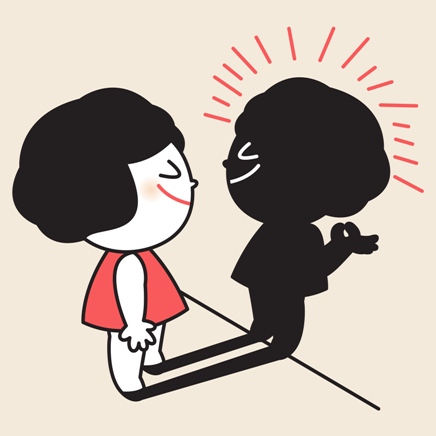
Are you currently with a partner who takes the dialogue “mein apni favourite hu” a little too seriously? Do you feel like she/he is charming and accomplished yet condescending and arrogant? Well, you my friend might be dating a narcissist.
Who exactly is a narcissist though?
It might be challenging to figure out if someone is a narcissist since the over-the-top vain stereotypes only exist in films and rarely in real life.
Narcissists create an inflated sense of self and have a deep need for excessive attention, admiration and troubled relationships. They also lack empathy.
Clinical psychotherapist Radhika Bapat says that the one common thread found in narcissistic people is their lack of empathy and their sense of entitlement.

Here are some expert-backed red flags that can help you identify if your partner is a narcissist:
Well if your answer to most of these questions is a yes then you could be in an exploitative relationship with a narcissist.
What does being in a relationship with a narcissist feel like?
It can certainly feel full of paradoxes. They could be romantic with you at one moment, and then be completely self-centred and unfeeling the next. Being in such relationships might often leave you feeling confused and stuck, and eventually emotionally drained, shares Bapat.
What should you do if you’re dating a narcissist?
To begin with, Bapat suggests you must gain better control of your life with these tips:
1. Seek professional help
Seeking the help of a mental health practitioner will help you rule out any chances of having clinical depression or anxiety. Research suggests that chronic stress, including that which stems from being in an exploitative relationship, can make you experience mental health issues.
2. Choose your long-term and short term goals
While dealing with the information that you’re dating a narcissist might seem overwhelming, it’s important to make decisions. Keeping in mind your own safety and well-being, make important decisions about choosing to remain or leave the relationship.
Select Topics of your interest and let us customize your feed.
PERSONALISE NOW
Although it’s rare, but if your narcissistic partner chooses to be a part of the healing process after an open conversation, a therapist can help greatly. They can help you give insights to help both understand self-defeating, emotional and cognitive patterns of thinking, feeling and behaving.
3. Do the inner work
Narcissistic people crave attention in order to feel good about themselves. Without any positive admiration, they might show withdrawal via tantrums. In the absence of positive admiration, they might talk about how they know you better than yourself, how well-respected and comparatively powerful they are, or even how they can ruin your reputation. In this need for attention lies your partner’s inner self.

If you find yourself in a narcissist relationship, you might notice patterns of dependency and low self-esteem with the help of a therapist. You must accept it and gradually learn to develop your own self-confidence and self-worth by practicing self-compassion.
Most importantly, if you don’t feel respected, don’t settle, ladies!
(With inputs from IANS)